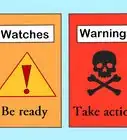This article was co-authored by Diane Martinez. Diane Martinez is a Certified Holistic Life Coach and Founder of Conscious Creating Life Coaching, LLC in Atlanta, Georgia. Diane has over 10 years of coaching experience and works with clients in person and virtually on a variety of topics including career decisions, family relationships, anxiety, and setting boundaries. Diane earned her Coaching Certification from Alan Cohen's Holistic Life Coach Training Program.
This article has been viewed 89,250 times.
Getting shy in front of the camera is common for many people[1] . Being photographed is an increasingly standard part of daily life, though, whether it’s candid shots out with friends or professional shoots for occasions such as work, weddings, or graduation. While there is not currently a scientifically verified way to overcome camera shyness, many people recommend practicing being in front of a camera and involving others as ways to help deal with being camera shy.
Steps
Addressing Camera Shyness Mentally
-
1Identify the reason. Ask yourself why you don’t want your picture taken. There are a number of reasons you may feel the desire to avoid a camera. Knowing what fuels your own shyness will help you identify ways to overcome it. Ask yourself:
- Is it because you don’t like the way you look overall?
- Is there a certain feature you would like to hide?
- Does the idea of putting an image of yourself out into the world cause you stress or anxiety?
-
2Find a relaxation technique. If you know in advance that you are going to be in front of a camera, try a relaxation technique to help manage the stress. Yoga, deep breathing, or even dancing around before a photo shoot have all been recommended by camera-shy people.
- Try a deep breathing cycle immediately before stepping in front of the camera. Close your eyes and slowly inhale while counting to three, hold your breath for two seconds, then breathe out over another three-count.
- Release some endorphins by making yourself laugh before you get in front of the camera. Find a funny picture or joke, or look back on an enjoyable memory.[2]
Advertisement -
3Try using positive self-affirmation while looking at a photo. Positive self-affirmations can be helpful for building up your self-esteem, so they might also help you to feel more confident about how you look in pictures. Try giving yourself a compliment or reflecting on how happy you felt when the picture was taken.
- For example, you can tell yourself something like, "My smile looks genuine and I look happy." Or, "I remember this day. It was so peaceful and I look like I'm enjoying myself."
- Try to find something positive to say about each picture of yourself that you look at.
-
4Limit your time looking at photos of yourself. If you find that the longer you look at a photo of yourself, the more negative things you have to say about it, then it might be helpful for you to limit your time looking at pictures of yourself.
- Try to allow yourself no more than three seconds to look at a photo of yourself, or just long enough to see it. Then, put away the picture.
-
5Identify critical phrases you say to yourself. You may have certain things that you say to yourself repeatedly when you see a picture of yourself that you do not like. To begin changing your thinking, you will need to begin to question and revise these critical phrases.
- Start by questioning the critical phrase, such as by asking questions like: Is that really true? Would a caring friend or family member say that to me? Is there any benefit to thinking this way? If not, then why don’t I stop thinking it?
- Then, try to turn the critical phrase into something positive. For example, if you tend to tell yourself, “I look ugly in all my pictures,” then try revising this by saying something like, “My eyes look really bright and blue in this photo.” Or, “I had just woken up and I was so sleepy!”
-
6Make yourself comfortable. Instead of trying to look good for the camera by finding a look that is fashionable or trendy, look good by finding a look that makes you comfortable. Even if your fears aren’t rooted in how you look on camera, getting comfortable will cause less stress and distraction.
- Dress for yourself. Whether you prefer loose-fitting sweats or fashion-forward outfits, you’ll feel the most comfortable in front of the camera when you feel like yourself.
- Find comfortable environments. For both more formal photo shoots and pictures with friends or family, start by only having your picture taken in places that are comfortable for you. If you don’t like being the center of attention in public, for example, start by taking pictures at home.
-
7Boost your confidence. Work on getting your confidence up so that you feel better stepping in front of the camera. Try some quick confidence-boosters to feel better before you get in front of the camera.
- Try a confidence boosting positive affirmation. Before you get in front of the camera, repeat a phrase like, "I am going to take a wonderful photo," or "I will be fearless in front of the camera."
- Adjust your posture. Some research suggests that adopting a good posture sends reassuring signals of capability to the brain.[3]
- Mentally reassure yourself. Picturing the best outcome can be mentally reassuring. Subdue your fears by picturing taking a great photo before you get in front of the camera.[4]
- Give yourself compliments. This help boosts your confidence if you're not secure about your appearance.
-
8Give yourself a reason. Try motivating yourself by giving yourself a reason to step in front of the camera despite your fear. Remind yourself that photos capture memories of the times and the people most important to you.[5]
- Remind yourself that your photos let you look back on times you enjoy. Think about times you really want to remember, such as vacations, celebrations with friends and family, and major life events such as getting married or starting a new job. Make an effort during those times to get in front of the camera.
- Look back over old photos to remind yourself of good memories and inspire you capture more.
- Set goals for yourself. Challenge yourself to appear in one photo during an event or with someone you care about.
Practicing for the Camera
-
1Pose in front of the mirror. Get comfortable with what lighting and angling can do to your look by posing in front of the mirror. Use this as time to find what works for you.
- Change up your lighting, as well as your pose. Compare daylight to an incandescent light, or midday to dusk.
- Don’t focus on the poses you don’t like. Instead of spending time worrying about why a pose didn’t work for you, spend more time working with angles and positions you find flattering.
- Make the experience fun for yourself by turning on music or posing with a friend.
-
2Take a selfie. Try taking some pictures of yourself with your own phone or camera. Don’t worry about getting a great picture. Just try to get used being photographed and seeing photographs of yourself.
- Remind yourself that no one else has to see your selfies. You can delete any of them that you do not like.
- If you are using your phone’s camera, try different filters and effects to make your pictures more fun and less intimidating.
-
3Get props. You could use any number of things as a prop depending upon the situation. Simply try to find something that will help you feel occupied or comfortable on camera.
- Try a photo booth or photo booth filter on a phone’s camera. Use hats, signs, and other props to take stress away from looking good for the camera.
- Pack a pair of sunglasses, a scarf, or some other accessory if you are going out with shutterbug friends. Throw on the glasses or bundle into the scarf so that only part of your face is exposed. This lets you practice being in pictures without feeling too overwhelmed.
Getting In Front of the Camera
-
1Work with a professional. Talk to a professional photographer to help find out what works best for you. Let them know that you are camera shy and that you want their help getting comfortable having your picture taken.[6]
- Book a short photo shoot. Work with them on posing, stance, lighting, or other issues about which you may have questions.
- Ask specific questions about things that make you nervous. If, for example, you don’t want people to see a feature such as a scar or birthmark, ask them, “How can I pose to downplay this feature but still look comfortable?”
-
2Have a friend there. Whether it’s a professional photo or a candid shot, get a friend to help you out. If you worry about being the center of attention, bringing other people into the picture is a great way to diffuse focus.
- If you are going out with a group, ask a friend to be your photo buddy. Ask someone, "Hey, will you jump in next to me if someone pulls out a camera?"
- If you have to do a solo shoot, have a friend or loved one there to support you. Ask if they can stand alongside the photographer or near you but just out of the shot. Focus your attention on them instead of the photographer by asking, "How was your day?" or something else unrelated to the photo shoot.
-
3Distract yourself. Take your focus away from the camera by putting it on something else. Find or bring a distraction to make things easier.
- If you have a photo shoot planned, have music or a video loaded on a device that you can play during the shoot.
- Bring a friend or family member to talk to during a formal shoot. If someone brings out a camera while you are out, simply start talking to a friend.
- Find another event on which to focus. For example, if you are out at a park and your group takes out their cameras, focus on a dog going for a walk or an oddly-shaped cloud instead of the cameras.
-
4Just keep taking pictures. The best way to get over being camera shy is through exposure. Keep challenging yourself to step in front of the camera, and eventually it may become easier.
References
- ↑ http://articles.latimes.com/1994-02-07/news/vw-20198_1_camera-equipment/2
- ↑ http://www.scientificamerican.com/article/why-laughter-may-be-the-best-pain-medicine/
- ↑ http://www.nytimes.com/2013/05/05/fashion/the-right-stance-can-be-reassuring-studied.html?_r=1
- ↑ https://www.psychologytoday.com/blog/flourish/200912/seeing-is-believing-the-power-visualization
- ↑ http://www.the.me/why-most-women-are-camera-shy/
- ↑ http://articles.latimes.com/1994-02-07/news/vw-20198_1_camera-equipment/2
About This Article
If you’re trying to get over being camera shy, practice different poses in front of a mirror until you find your most flattering angle and lighting. As you pose, take some selfies! Nobody has to see them but you, but that way you’ll get used to being photographed and looking at photos of yourself. Try giving yourself positive self-affirmations by noticing your genuine smile in one picture or remembering what a great day you had in another. The best way to combat camera shyness is to keep taking pictures. To learn more from our Professional Counselor co-author, like how to get comfortable and be confident, keep reading the article!

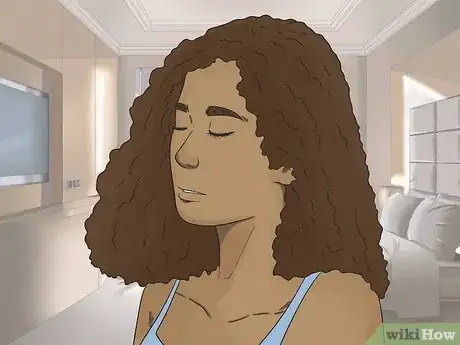
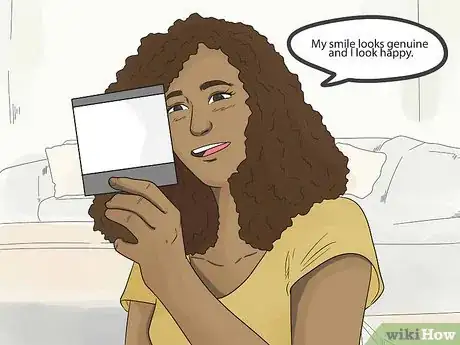
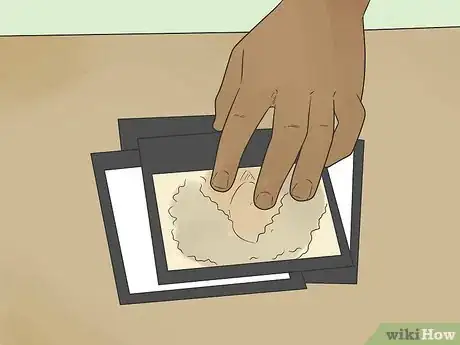
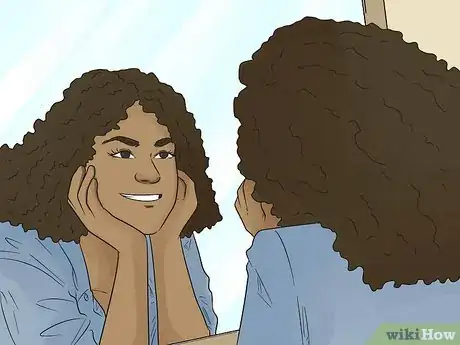
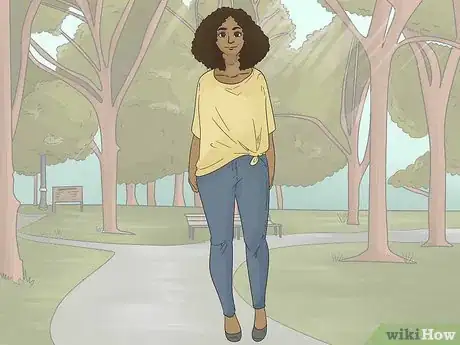

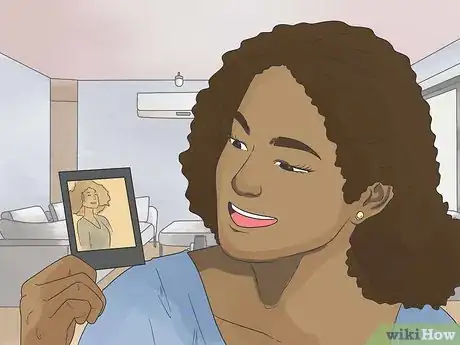
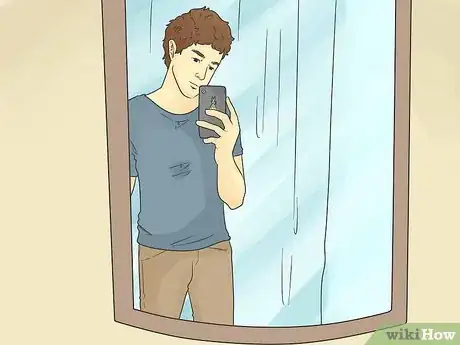
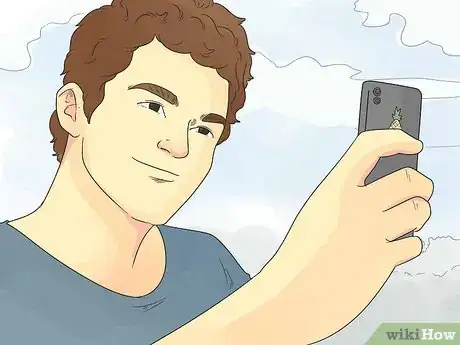


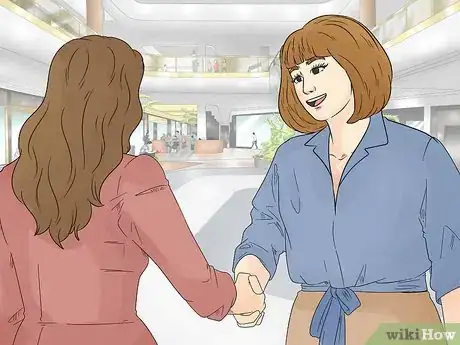
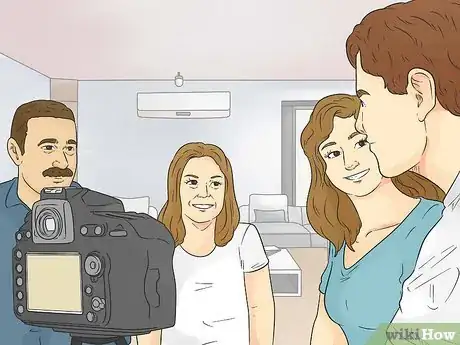
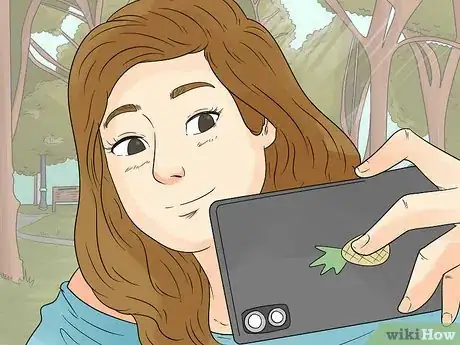




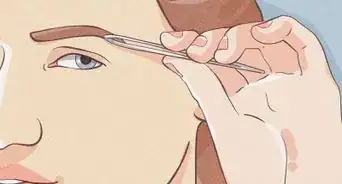



-Step-12.webp)













